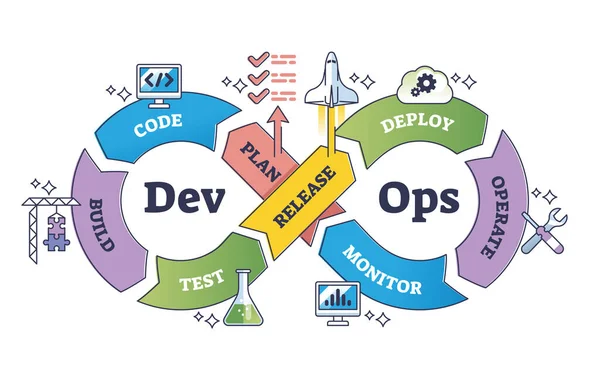DevOps automation refers to the practice of using various tools, processes, and technologies to automate and streamline the tasks involved in software development, testing, deployment, and operations. The primary goal of DevOps automation is to enhance the efficiency, reliability, and speed of the software development lifecycle by reducing manual interventions, minimizing errors, and enabling teams to deliver software more rapidly and consistently.
In a DevOps context, automation involves scripting and configuring tools to perform repetitive tasks that would otherwise require manual intervention. These tasks can include building and compiling code, running tests, provisioning and managing infrastructure, deploying applications, monitoring performance, and more. By automating these processes, IT teams can achieve several key benefits:
Faster Delivery: Automation eliminates the need for manual, time-consuming tasks, allowing software to be built, tested, and deployed more quickly. This results in faster feature releases and shorter development cycles.
Consistency: Automation ensures that processes are executed consistently every time, reducing the risk of errors that might occur due to human intervention.
Reliability: Automated processes are less prone to errors, which leads to increased reliability and stability of software applications.
Scalability: Automation enables the provisioning and scaling of resources on demand, making it easier to accommodate changes in user demand and traffic spikes.
Repeatability: Automated workflows can be replicated and reused across different environments, ensuring that development, testing, and production environments are consistent.
Continuous Integration and Continuous Delivery (CI/CD): Automation is a cornerstone of CI/CD practices, enabling the automated building, testing, and deployment of code changes. This results in a continuous and reliable software delivery pipeline.
Efficiency: Automating routine tasks frees up developers and operations teams to focus on higher-value tasks, such as improving application functionality and performance.
Reduced Human Error: Automation reduces the likelihood of human errors that can occur during manual tasks, leading to more stable and secure applications.
Version Control: Automation tools often integrate with version control systems, allowing teams to track changes, collaborate effectively, and ensure proper versioning.
Infrastructure as Code (IaC): Automation tools like Terraform and Ansible enable the definition and management of infrastructure using code, promoting consistent and repeatable infrastructure deployments.
In summary, DevOps automation is a crucial aspect of modern software development and operations. It empowers IT teams to build, test, deploy, and manage applications with speed, consistency, and reliability. By leveraging automation tools and best practices, organizations can optimize their development processes and deliver high-quality software products more efficiently

DevOps Automation
- Post author:admin
- Post published:August 28, 2023
- Post category:Uncategorized
- Post comments:0 Comments

